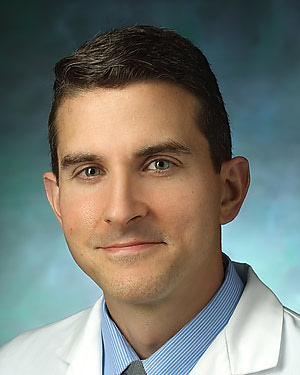Research Lab Results
-
Joel Blankson Lab
Work in the Joel Blankson Lab explores the mechanism of control of HIV-1 replication in a cohort of patients known as elite controllers or elite suppressors. These patients are HIV-1 seropositive but maintain levels of viremia that are below the limit of detection of standard clinical assays. We feel that elite suppressors represent a potential model for a therapeutic HIV vaccine. Our central hypothesis is that many of these patients are infected with fully replication-competent HIV-1 isolates that are held in check by the immune system. To test this hypothesis, we are studying many different host and viral factors in these patients.
-
Best Laboratory
The Best Laboratory focus on therapeutic vaccine development for HPV-related diseases by developing a murine model of papilloma analogous to Recurrent Respiratory Papillomatosis (RRP) for testing of DNA vaccine technology. We also work to understand the immunosuppressive tumor microenvironment that facilitates RRP development, and translate this work into novel therapies and clinical practice.
-
Liliana Florea Lab
Research in the Liliana Florea Lab applies computational techniques toward modeling and problem solving in biology and genetic medicine. We work to develop computational methods for analyzing large-scale sequencing data to help characterize molecular mechanisms of diseases. The specific application areas of our research include genome analysis and comparison, cDNA-to-genome alignment, gene and alternative splicing annotation, RNA editing, microbial comparative genomics, miRNA genomics and computational vaccine design. Our most recent studies seek to achieve accurate and efficient RNA-seq correction and explore the role of HCV viral miRNA in hepatocellular carcinoma.
-
Justin Bailey Lab
We study human B cells and neutralizing antibody responses against hepatitis C virus (HCV), hepatitis B virus (HBV), SARS-CoV-2, and respiratory syncytial virus (RSV). Our overarching hypothesis is that understanding the B cell response in individuals who naturally control infections, and those who have been vaccinated, can help us to understand the basic biology behind successful immune responses, leading to design of more effective vaccines. A particular technical strength of our laboratory is high dimensional flow cytometric analysis of antigen-specific B cells, which allows us to phenotype these rare cells, and also to sequence B cell receptor (BCR) repertoires and isolate virus-neutralizing monoclonal antibodies (mAbs). -
Drew Pardoll Lab
The Pardoll Lab focuses on the regulation of antigen-specific T cell responses and studies approaches to modify these responses for immunotherapy. Pardoll has a particular interest in cancer immunology and his lab’s studies on basic immunologic mechanisms have led to the development and design of a number of cancer vaccines and discovery of key checkpoint ligands and receptors, such as PD-L2, LAG-3 and neuritin, many of which are being targeted clinically. Our primary pursuits are discovering and elucidating new molecules that regulate immune responses, investigating the biology of regulatory T cells, and better understanding the specific biochemical signatures that allow a patient’s T cells to selectively target cancer cells.
-
David Sack Lab
Research in the David Sack Lab focuses on enteric infections. Our team has worked to develop laboratory detection methods to better understand the epidemiology of these agents. We also work to create appropriate clinical management strategies, such as antibiotics and rehydration methods, for enteric infections. Our work has included participating in the development of vaccines for a range of bacterial infections, including rotavirus, cholera and enterotoxigenic E. coli.

